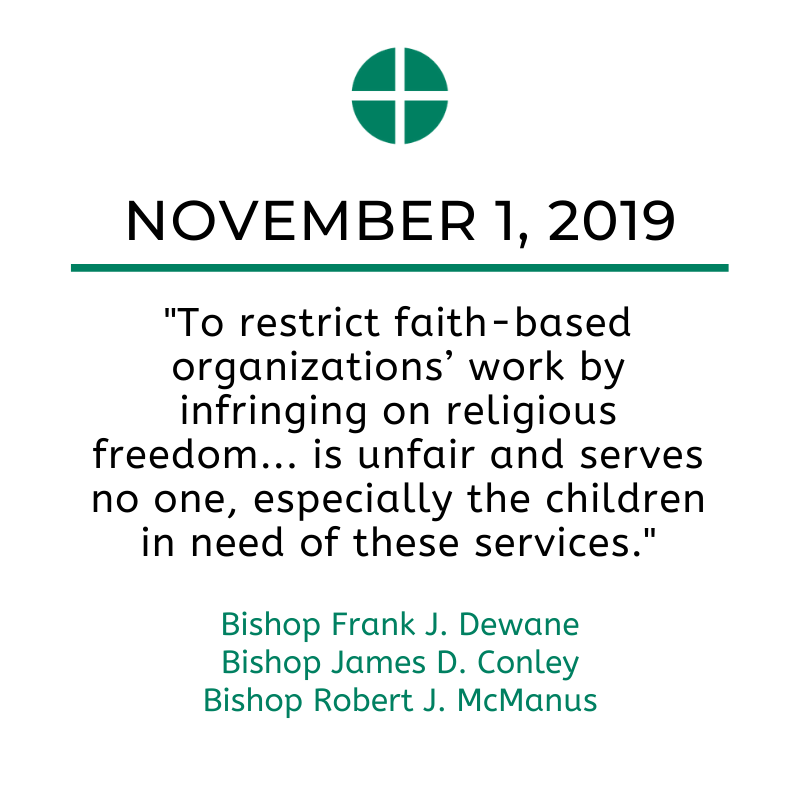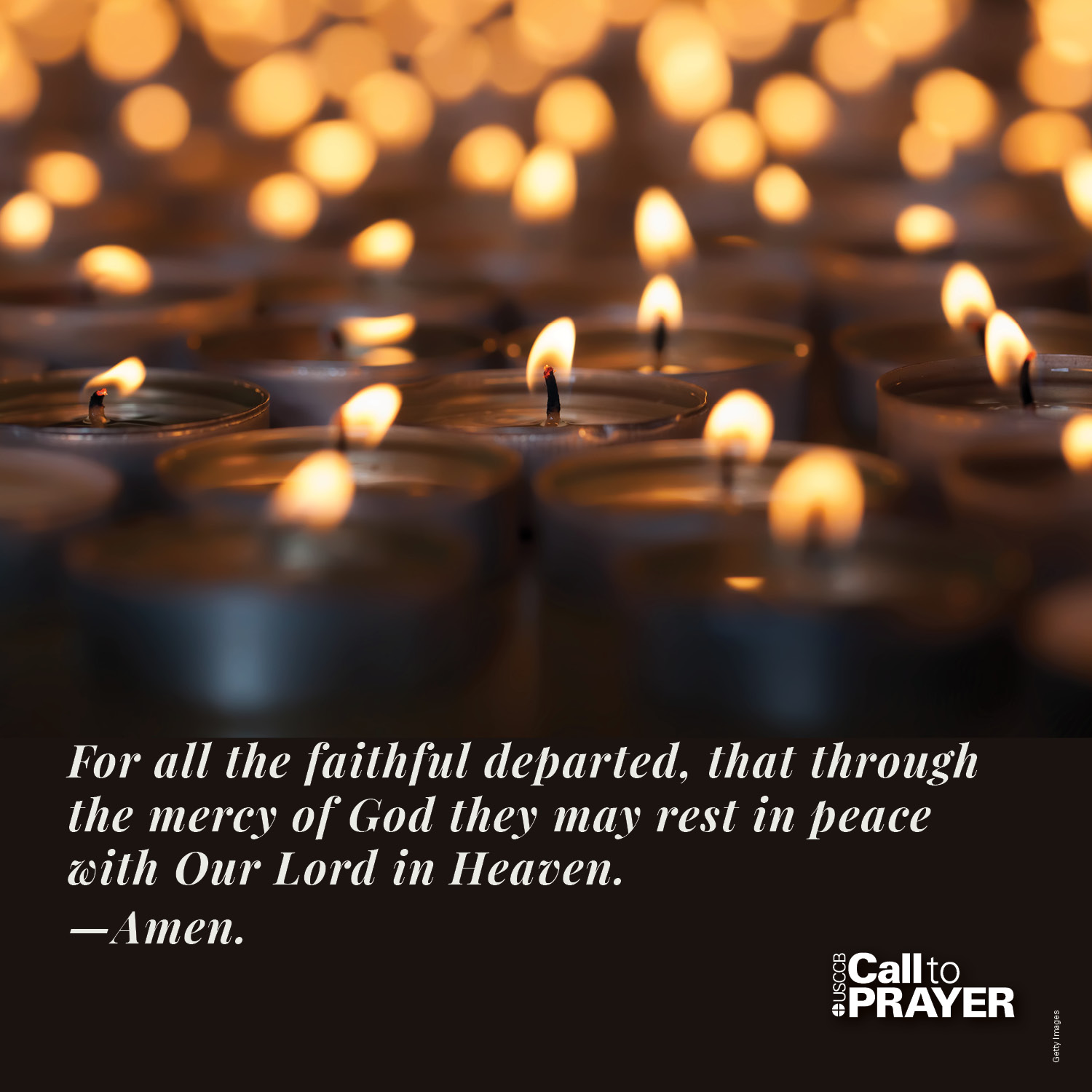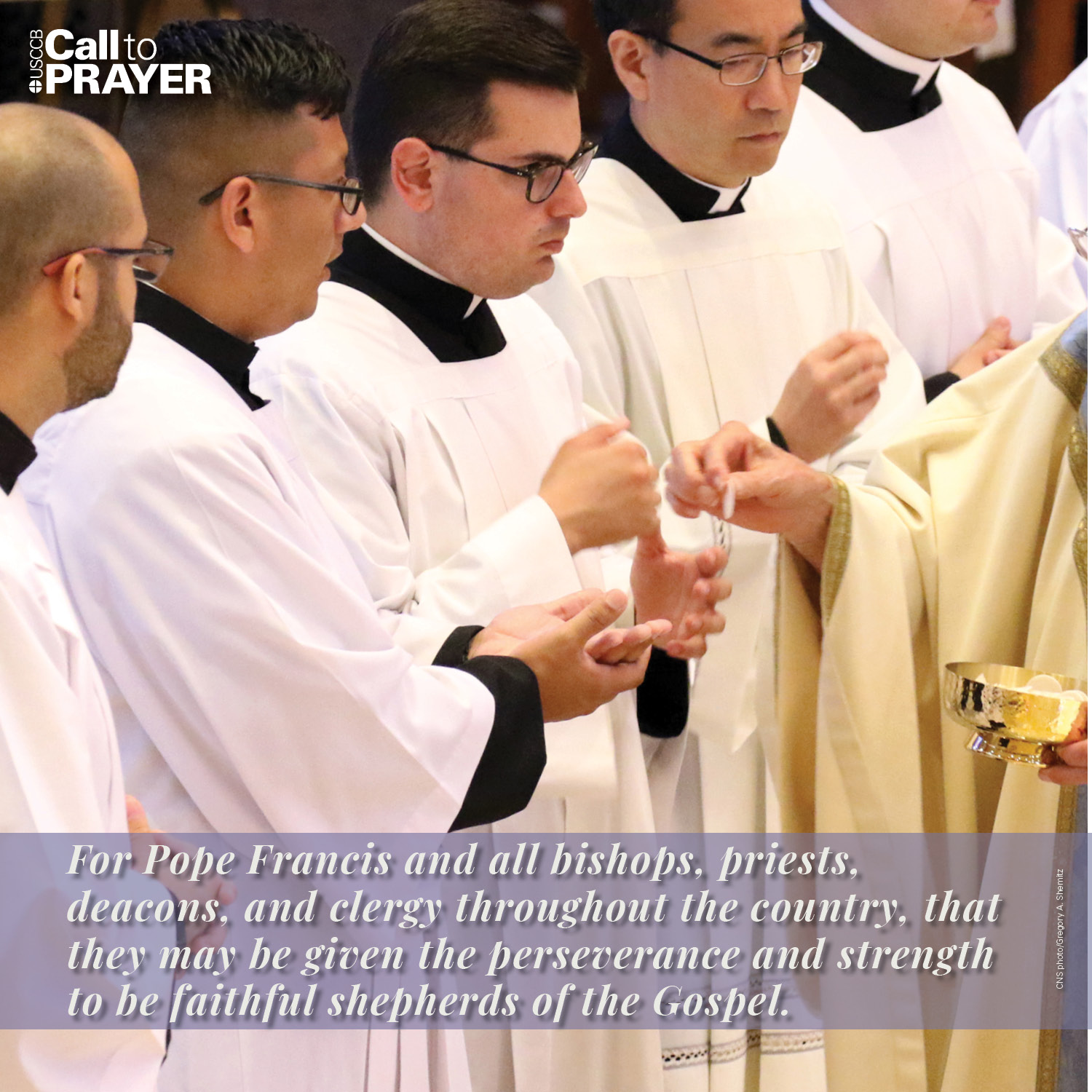Call to Prayer: November 22, 2019
Archive
Made for Love Ep 50: Praying as a Family
No one really teaches families how to pray together. They know they should, but they don’t necessarily know how. Today we’ll hear from some past guests about how they go about praying with their spouse and children. Features Bishop Milan Lach, SJ, Lindsay Schlegal, Dan Meola, David and Kate Dawson, Andy and Sara Sefranek, and Steve and Jacinta Splonkowski.
on Podbean:
or Soundcloud:
Archive
Call to Prayer: November 15, 2019
Archive
Nature Part 4
Today, we are going to finish our introduction to nature by applying what we have learned to a moral dilemma. Recall our friend from the first post, who likened using contraception to treating an illness. This is his thought process: “Well, it’s natural to get sick, but we take precautions to prevent illness all the time. Similarly, getting pregnant is a natural process. Why can’t we take precautions to stop this natural process? If contraception is unnatural, then I guess preventing an illness is unnatural, too!” Let’s unpack this.
The first assumption that our friend makes is that getting sick is a natural process. Is this true? Remember our beaver example, which demonstrated that certain things can be natural or unnatural in different respects (i.e. eating potato chips). Well, getting sick is natural insofar as all living things are prone to it. If it has life, it can also fall ill, become infected, die, and decay. But we must consider not only what happens to living things, but also the nature of living things. Just because it happens doesn’t mean it’s natural.
Living things possess an innate principle of motion and rest– they are animate; they move. So, when animation is compromised, take a person in a coma for example, then that compromises the living thing’s very nature. It is not “being what it is” at that moment. You don’t look at a person in a coma and think, “That person is living her best life.” To get sick is, in fact, unnatural for the living thing. We all kind of know that through common sense.
So contrary to our friend’s idea, preventing illness is more natural to the human being, in the way we are talking about, than getting sick. That is because preventing illness is the application of reason (proper to humanity) to a problem (illness). According to St. Thomas Aquinas, there is a law that governs all living things, and its precepts are: do good and avoid evil, preserve one’s life, and preserve the life of one’s species.[1] Violating these precepts would be unnatural. Since illness is a threat to one’s life, it is actually natural for animals (human beings included) to seek out remedies that prevent or reverse illness; to do this is natural insofar as it restores nature to its proper order. So no—Christians aren’t against medicine!
Now, we are going to contrast the above with contraception.
Having sex is an activity which, by its nature, intends the procreation of children.[2] This is evident by biology: the reproductive organs have no function except generation, and they don’t “work” on their own but only with each other (one male, one female). If the sexual organs “do their job” to the peak of their powers—if they fulfill their nature as reproductive organs—a baby is conceived. By contrast, there is no organ in the body that exists in order to nurture disease. Rather, there are all sorts of defense mechanisms in the body to fight disease! So just like it would be unnatural to thwart the functioning of the stomach (say, by inducing vomit), to have sex with the intention of thwarting the natural purpose of the sexual organs is unnatural. When we consider the Natural Law applied to the human person, we must consider how having sex without being open to life affects human dignity and flourishing. (Alas, more for a future post!)
In conclusion, we must not treat the “natural process” as a univocal thing; we must always consider the subject which undergoes the process. It is clear that some processes are natural in one respect, but not in another. To ask whether something is natural or unnatural is really to ask. “Is this good for this thing?” If it prevents the living out of a thing’s nature, it is bad (unnatural). If it helps the thing function and flourish, it is good (natural).
[1] ST I-II, Q.94, Art. 1 & 2
[2] We are assuming this for now but stay tuned for another post on the ends of procreation.
About the Author: Bridget Groff is an M.A./Ph.D. student in the School of Philosophy at the Catholic University of America. She currently works part-time at the United States Conference of Catholic Bishops as an intern for the Subcommittee for the Promotion and Defense of Marriage.
Archive
Call to Prayer: November 8, 2019
Archive
Made for Love Ep 49: Losing Everything
God does not promise us that we will be successful in our worldly endeavors. In fact, many of the saints look like total failures from the outside. Today’s episode focuses on one story, similar to episode two. This is Frank Fullin, who went through brain surgery while losing his company, savings, and house all at the same time. He and his wife, Jennifer, describe it as “the most spiritually rewarding time of my life.”
On Podbean:
And SoundCloud:
Archive
Press Release: USCCB Bishop Chairmen Commend Administration Action
Bishop Chairmen Commend Administration Action to Prevent Government Discrimination Against Faith-based Adoption, Foster Care, and Social Service Providers
WASHINGTON—Bishop Frank J. Dewane of Venice, Chairman of the Committee on Domestic Justice and Human Development, Bishop James D. Conley of Lincoln, Chairman of the Subcommittee for the Promotion and Defense of Marriage, and Bishop Robert J. McManus of Worcester, Chairman of the Committee for Religious Liberty, have issued a statement commending a proposed rule change that will help ensure faith-based social service providers will not be excluded from certain federally-funded programs at the U.S. Department of Health and Human Services (HHS).
Their joint statement follows:
“We commend the Administration for acting to change a 2016 regulation that threatened to shut out faith-based social service providers, namely adoption and foster care agencies that respect a child’s right to a mother and a father. To restrict faith-based organizations’ work by infringing on religious freedom – as the 2016 rule threatened to do – is unfair and serves no one, especially the children in need of these services. We are alarmed and saddened that state and local government agencies in multiple jurisdictions have already succeeded in shutting down Catholic adoption and foster care agencies as a result of their Catholic beliefs. At a time when over 400,000 children are in foster care, we need to take steps to increase – not decrease – their opportunities to be placed with safe and loving families. We welcome today’s proposed rule modifications and look forward to reviewing and commenting on them further.”
Archive
Call to Prayer: November 1, 2019
*No fasting today since it’s the Solemnity of All Saints! (And go to Mass! :))

Archive
Made for Love MINISODE: #CapforStrat
What do you do when your Marvel-comic-loving father has 5 weeks to live? Make sure he can see Captain America, of course! Here’s Sophie Caldecott sharing how she did just that, getting the attention of Marvel on social media. This is just a five-minute special for All Saints day!
Listen on Podbean:
or Soundcloud:
And read Sophie’s blogpost about this:



